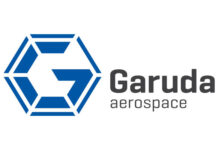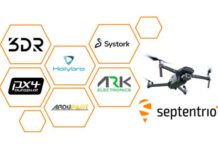Withstanding a stellar reputation for the indigenous capability of designing, developing and manufacturing advance composite, high-performance airborne systems, survivability systems and defense electronics, TimesTech Buzz in this issue loops in the pre-eminent Raj Kumar Pandey, CEO and Executive Director ADSL. If not known, M/s ADSL is responsible for Defence & Aerospace business within JCBL Group. M/s ADSL is organized in four verticals viz Aerospace, Armored vehicles, Combat System technologies and Unmanned systems. In this interview Raj Kumar elaborates on the company’s contribution to the aerospace and defence industry, the talent pool gap in the A&D sector and their future prospects in designing A&D solutions for the indigenous and global market. Edited Excerpts are drafted below.
TimesTech: Can you provide us with an overview of ADSL and its role within the JCBL organization?
Raj Kumar: M/s ADSL is Responsible for Defence & Aerospace business within JCBL Group. M/s ADSL is organised in four verticals viz Aerospace, Armored vehicles, Combat System technologies and Unmanned systems. Aerospace vertical focuses on Airborne/cargo extraction systems, ground support equipment, Aerostructures and Subsystems. Armored vehicle group is focusing on survivability-equipped cabins for the mounted gun system, hull for track vehicles, light bulletproof vehicles and protected troop carriers. Combat System Technologies basically focuses on defence electronics, command & control shelters, remote Control weapon systems, turrets, and related subsystems. The unmanned system focuses on unmanned Aerial & ground vehicles.
TimesTech: How does ADSL contribute to the aerospace and defence industry, and what are its core capabilities?
Raj Kumar: M/s ADSL is capable of defence mobility, survivability and defence electronics. With Hitech design & development capability within ADSL and group Manufacturing capability, M/s ADSL is equipped to Service any products globally as defined in the four verticals above. We believe that Continuous innovation is the key to remaining a preferred provider in the marketplace. Real Core’s strength lies in integrating multi-physics products.
We have created the indigenous capability to Design, develop and manufacture advanced composite, high-performance airborne systems, survivability systems and defence electronics. We have already exhibited this through the indigenous development of heavy drop systems, cargo loaders, and Equipped Armored cabins along with DRDO.
TimesTech: What are the key challenges that ADSL faces in delivering advanced aerospace and defense solutions?
Raj Kumar: The biggest challenge is trained Manpower and access to defence testing in one place. With Our focus on innovation-driven business, the right people are critical. There are very few institutes which focus on Defence & Aerospace technologies. Government testing centres are at various places across pan India and at times it becomes challenging to Manage continuous interactions with testing people.
TimesTech: How does ADSL ensure compliance with government rules and regulations in its aerospace and defense offerings?
Raj Kumar: M/s ADSL is very particular about government compliances. We strictly follow requirements and procedures laid down by DRDO, DGQA and the Department of Defence Production. Every product has typical requirements, and we have special experienced people to fulfill the requirement. We are proactively working for future Defence production licenses as required for upcoming products.
TimesTech: Can you discuss the research and development efforts undertaken by ADSL to enhance its Aerospace and defense solutions?
Raj Kumar: “Innovation for safer future” is our key punch line. Every business we do is based on new R&D. We remain ahead in the marketplace with our continuous innovation.
In the Survivability domain, we are working on new Survivability recipes that may change the complete ballistic Market. In cargo aerospace, we already have developed a heavy drop system and loader. We are continuously working on improving these technologies and developing out-of-the-box technologies to compete with our product and strengthen the belief of our customers. In Aerostructures, we are working on the localization of prepregs and core. Today Indian market is totally dependent on importing such solutions. We will be able to provide local solutions and export such products. All due to our new R&D initiatives. In the combat arena, we have developed products like man turret, RCWS and shelters which will be soon hitting the marketplace.
TimesTech: What differentiates ADSL’s aerospace and defence solutions from those of its competitors?
Raj Kumar: Our products are based on indigenous R&D efforts and as per Indian requirements, hence very relevant for the Indian market. With our approach of continuous development, we push the market up the value chain. This is what makes us different from our competitors.
TimesTech: In the context of the drone market, how do you envision the evolution and potential opportunities for a company like JCBL?
Raj Kumar: In the context of the drone market, we believe that JCBL envisions the evolution towards customized product mission profiles. We believe that companies like JCBL will play a significant role in changing the market by developing their own autopilots with advanced capabilities. This includes capabilities such as landing on moving ships and operating in GPS-denied areas. We acknowledge the competition and challenges in accessing high-quality payloads, some of which may be export-controlled by foreign companies. However, we see this as an opportunity for Indian companies to develop their own products and become leaders in the field. By leveraging our expertise and focusing on developing cutting-edge capabilities, we aim to not only cater to the Indian market but also expand into other markets. We believe that the present government’s emphasis on this sector is crucial, and we see great potential for growth and success in the drone market in the coming years.
TimesTech: As an established company, how have you observed the growth of the SME ecosystem, and what significance does it hold? Additionally, what steps do you believe are necessary to further foster the growth of this ecosystem?
Raj Kumar: From our observation, the growth of the SME ecosystem in the defence industry has been crucial. SMEs play a vital role in delivering small numbers of high-quality products, which are essential for a vibrant defence industry. In global markets like Europe, Israel, and the United States, SMEs are actively involved in creating products and forming production strategies in collaboration with larger companies. These SMEs often have deep expertise and agility to meet specific defence requirements. In India, we need to foster the growth of the SME ecosystem to enhance our capabilities and competitiveness.
To further promote the growth of the SME ecosystem, certain steps are necessary. Firstly, we should focus on creating a complete ecosystem that supports the growth of SMEs. This includes not only infrastructure development but also providing access to testing facilities, specialized training, and technology support. Collaboration between larger companies and SMEs can also play a significant role in fostering growth. Establishing defence corridors and dedicated testing centres can further facilitate the growth of SMEs by providing them with the necessary resources and opportunities to thrive. It is important for the government and industry stakeholders to actively support and invest in the growth of SMEs, recognizing their crucial role in the defence sector.
TimesTech: Could you outline your strategic plans for expanding your employee strength and capabilities in the future, and how do you intend to achieve this growth?
Raj Kumar: Our strategic plans for expanding our employee strength and capabilities revolve around two key aspects: developing our own capabilities and forming strategic partnerships. Firstly, we are focused on enhancing our in-house capabilities by investing in skill development and creating a talent pipeline. This involves collaborating with educational institutions to offer specialized programs in defence-related fields, such as systems engineering. By ensuring a strong foundation of knowledge and skills within our workforce, we can meet the evolving demands of the industry.
Secondly, we aim to form strategic partnerships with foreign original equipment manufacturers (OEMs) and Indian companies. These partnerships will provide us with access to advanced technologies, capabilities, and markets. By collaborating with OEMs, we can leverage their expertise and bring cutting-edge solutions to the Indian defence sector more efficiently. Such collaborations will also facilitate knowledge transfer and enable us to enhance our indigenous capabilities.
Overall, our strategic plans involve a comprehensive approach that combines internal skill development with strategic partnerships to strengthen our employee strength and capabilities. This approach will enable us to achieve sustainable growth and fulfil our commitment to serving the defence industry.
TimesTech: How does ADSL leverage its expertise in aerospace and defence to contribute to the overall growth and success of JCBL as an organization?
Raj Kumar: Defence & Aerospace is a key business today. While the rest of the JCBL group focuses on civilian technologies we bring in the defence & aerospace market to the group. Defence & Aerospace is a booming segment and ES is on the national security agenda. This segment has maximum export potential and is set to bring in planned ambitious growth for the group. Apart from business revenues, we also bring in certain expertise which will be used in the civilian market as well. Most of the areas like aerostructures and electronics will have a dual role. We will use these capabilities to gain those markets as well.















